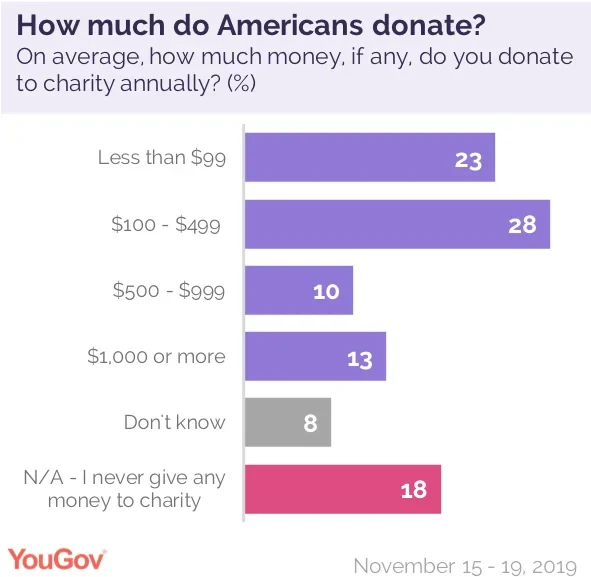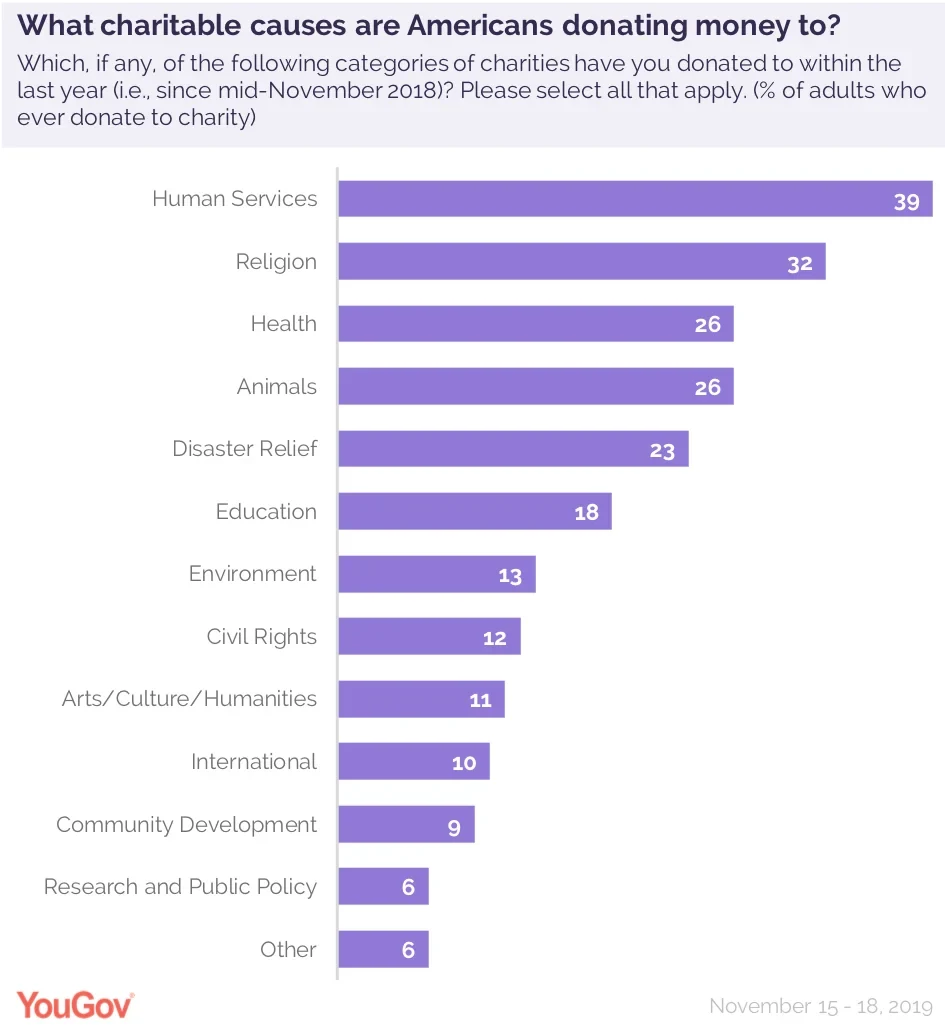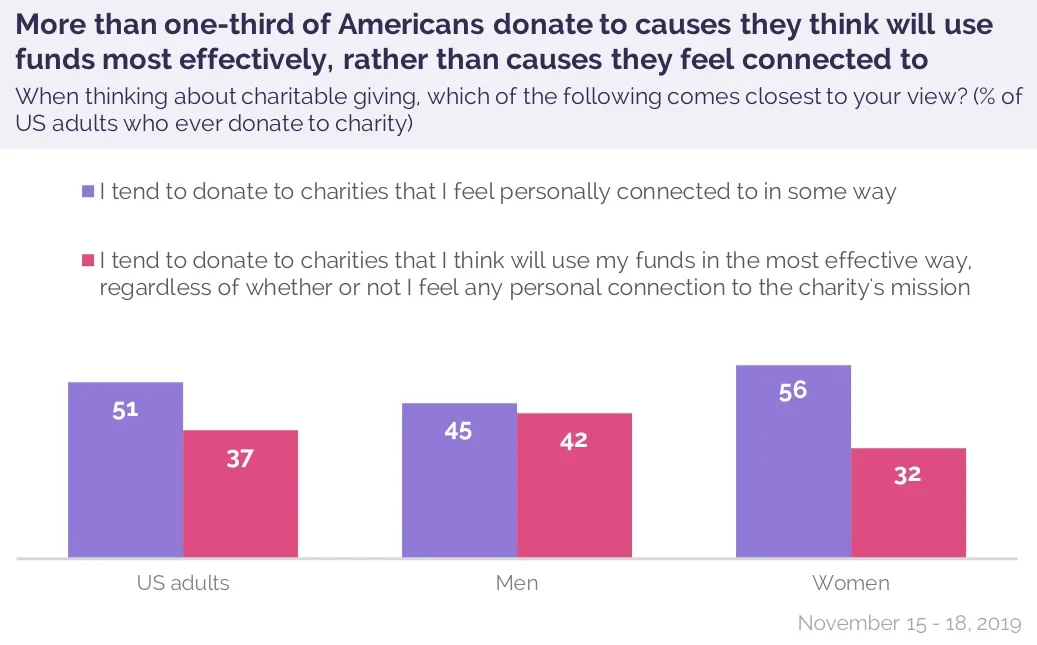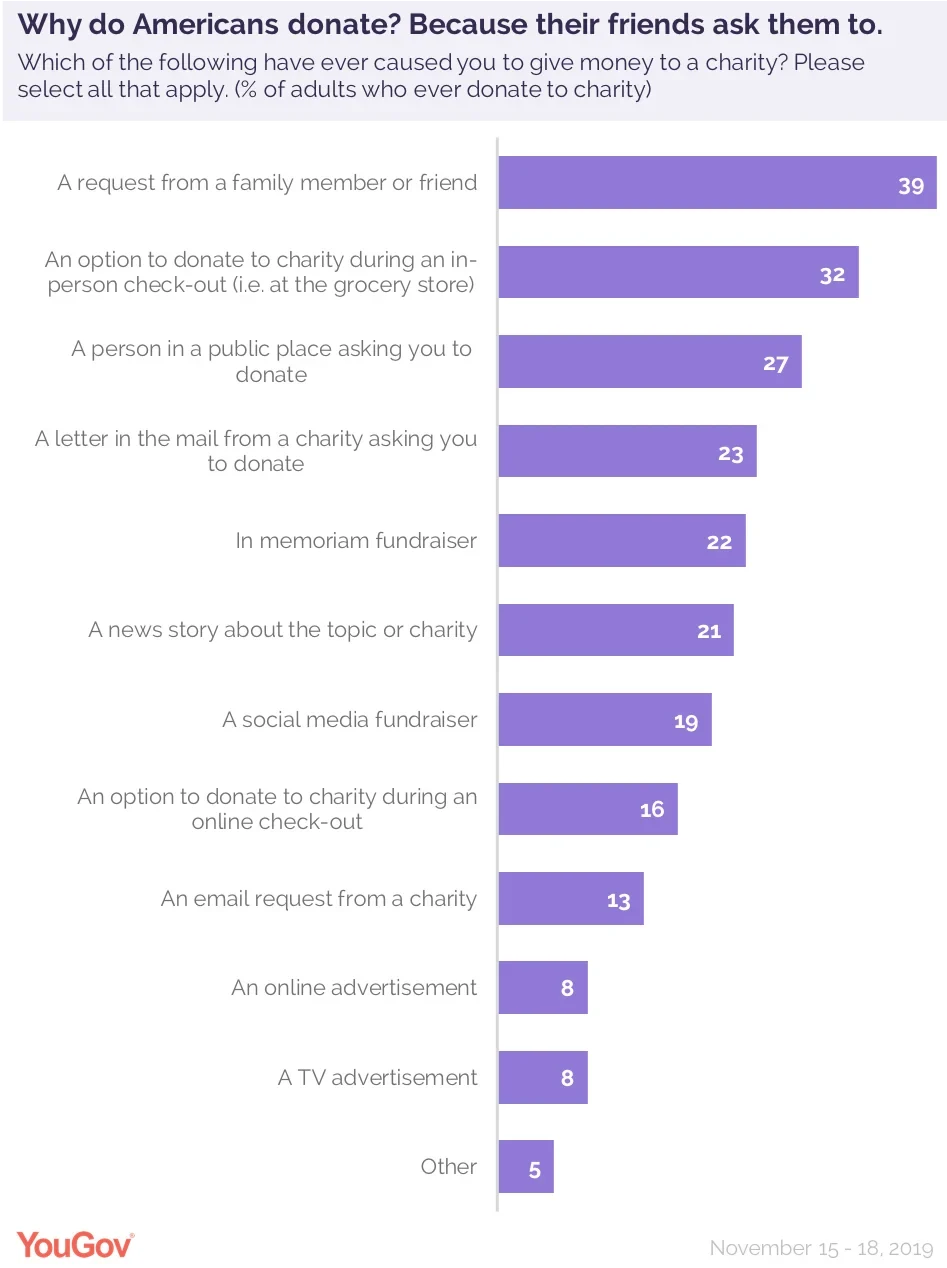After loading up on holiday gifts (and maybe also a few items for themselves) on Black Friday and Cyber Monday, some Americans will make it a point to donate to charity on Giving Tuesday. Started in 2012, Giving Tuesday — which happens on December 3 this year — encourages Americans to give back to their communities.
A new YouGov survey examines how much Americans typically give to charity, what organizations they donate to, and which factors influence their charitable giving.
Most (75%) Americans say that they typically donate some amount of money to charity every year. Nearly a quarter (23%) of US adults donate less than $99 annually, while 28 percent donate between $100 and $499 every year.
Roughly one in eight (13%) Americans donates $1,000 or more to charity every year. Those with an annual household income of $80,000 or more are especially likely (33%) to say they donate at least $1,000 to charitable organizations every year. Baby Boomers (20%) are also particularly likely to say they donate this much money to charity each year, while 11 percent of Gen X’ers and 5 percent of Millennials say the same.
What causes are Americans donating to?

Within the last year, 39 percent of those who have donated say they gave to a human services charity, such as a homeless shelter, food bank, or youth service organization. About one-third (32%) say they’ve donated to a religious charity, such as a church or faith-based media outlet. Roughly one quarter (26%) have donated to a health-related charity, while an equal number (26%) have donated to charities which work with animals.

Millennials, Generation X, and Baby Boomers tend to differ slightly in their charitable giving.
Millennials (18%) are more likely than Gen X’ers (11%) and Baby Boomers (7%) to say they’ve donated to a civil rights organization within the last year. Meanwhile, Gen X’ers (41%) and Baby Boomers (42%) are more likely than Millennials (31%) to have donated to a human services charity.
Religious charities are another category that sees generational divides: 37 percent of Baby Boomers donated to a religious organization within the past year, while fewer members of Generation X (28%) and Millennials (24%) say the same.
When it comes to choosing charities, it’s all about personal connection for some. But for others, it’s head over heart.
About half (51%) of Americans who donate say they tend to give to charities they feel personally connected to in some way. But nearly four in 10 (37%) take a different approach: they donate to charities they think will use their funds most effectively. Men (42%) are more likely than women (32%) to say this is how they think about charitable giving.

Many charities will be capitalizing on the season of giving and finding ways to ask Americans for donations. But what are the most effective ways to solicit donations?
Getting people to ask their friends, for one. Almost four in 10 (39%) Americans say they’ve donated to a charity because of a request from a family member or friend. About one-third (32%) say they’ve donated during an in-store checkout at a grocery store or drug store, and 27 percent have given money to a charity because there was a person soliciting donations in public.

Additional YouGov data from a recent Daily Agenda poll of more than 18,000 Americans finds that about two-thirds (66%) of people would welcome the gift of a charity donation in their name. This could be a great gift idea for older relatives this holiday season: Americans over 55 (73%) are especially likely to say that they would consider a donation in their name to a charity they support to be a good gift.
See the full survey results here
Methodology: Total sample size was 1,242 adults, including 1,036 who ever donate to charity. Fieldwork was undertaken between November 15 - 18, 2019. The survey was carried out online. The figures have been weighted and are representative of all US adults (aged 18+).
Image: Getty









